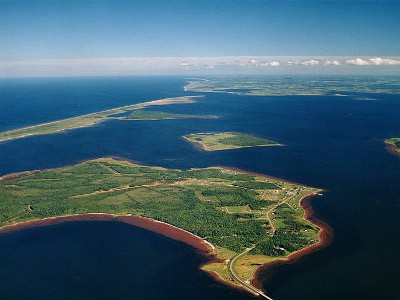
 A new study from the University of Victoria predicts that if fossil fuel consumption continues unabated global temperatures will rise by an average of eight degrees Celsius over preindustrial levels by the year 2300, drastically transforming the planet and wiping out untold numbers of plant and animal species.
A new study from the University of Victoria predicts that if fossil fuel consumption continues unabated global temperatures will rise by an average of eight degrees Celsius over preindustrial levels by the year 2300, drastically transforming the planet and wiping out untold numbers of plant and animal species.
Using simulations based on four different Earth system models, researchers found that by exhausting all of the world’s known fossil fuel reserves – a hypothetical “worst-case scenario” – the planet would warm by 6.4 to 9.5 degrees Celsius in total, Arctic temperatures would rise by a staggering 14.7 to 19.5 degrees Celsius and regional precipitation would increase fourfold.
“In the absence of global mitigation actions, five trillion tonnes of carbon, corresponding to the lower end of the range of estimates of the total fossil fuel resource, is often cited as an estimate of total cumulative emissions,” say the study’s authors. “[This] would result in considerably larger global and regional climate changes than previously suggested.”
Experts say that these kinds of temperatures have not been seen on Earth since the early Eocene epoch between 49 and 56 million years ago, when damp swamps and forests covered much of the land from pole to pole and mammals adapted to the oppressive heat by shrinking to less than half their previous size. But the speed of today’s warming (projected to occur over the next 200 – 300 years, a comparative eye-blink in evolutionary terms) would mean that most species would not have the time to adapt.
“I think it is really important to know what would happen if we don’t take any action to mitigate climate change,” said Katarzyna Tokarska, PhD candidate at the School of Earth and Ocean Sciences, University of Victoria, and lead author on the study. “[This research] is a warning message.”
Contrary to previous models which predicted a slow-down in warming once atmospheric CO2 concentrations hit a peak at the close of the 21st century, the new study argues that global warming would likely continue in a linear fashion up until all fossil fuel reserves are used up.
The Intergovernmental Panel on Climate Change (IPCC) has quoted a worst-case scenario of a 2.6 to 4.8 degrees Celsius by the close of this century and based on an estimate of two trillion tonnes of carbon released into the atmosphere. The fact that the IPCC has not marked out projections past the year 2100 has been a cause for concern within the scientific community where some worry that the full risks of global warming are being ignored.
“The fixation on what happens by the year 2100 is unhealthy and ignores the large risks that become apparent when thinking on longer time scales and with a more complete treatment of real physical and biological processes,” says Matthew Huber, earth scientist at Purdue University and the University of New Hampshire.
The Paris Climate Change Agreement which aims to mitigate the damage caused by a warming planet has called for a maximum increase of two degrees Celsius in global temperatures.
Leave a Reply
You must be logged in to post a comment.





 Share
Share Tweet
Tweet Share
Share




Comment